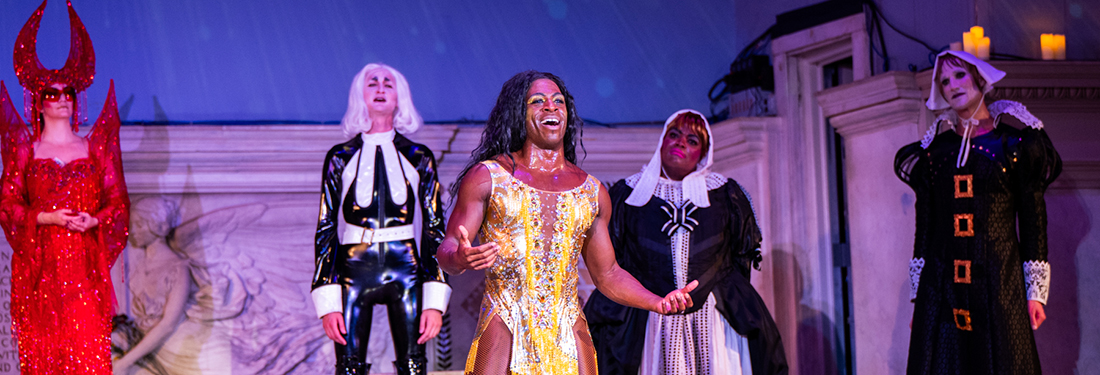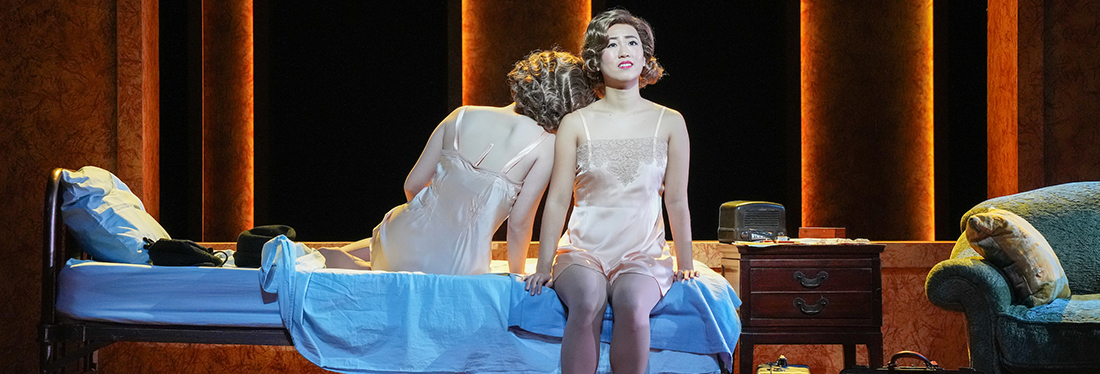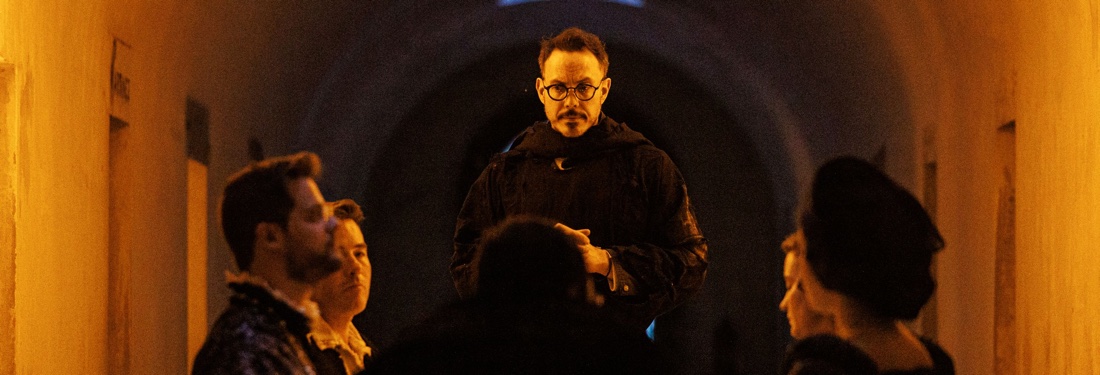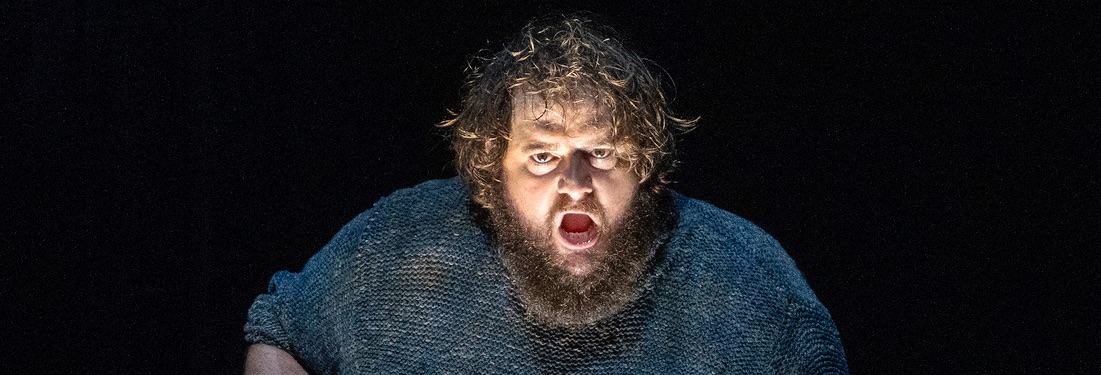
Gabrielle Ferrari
Double double, toil and trouble, y’all, and happy spooky season from Slaylem. (It’s like Salem, but fun.)
Mixing the historical with the personal in strikingly original ways, Davóne Tines and Zack Winokur’s Robeson sent sparks out over the Hudson.
While you may need to bring along your Dramamine, the Met’s new production of La forza del destino, does—eventually—spin fast enough to achieve escape velocity.
I watched the finals for this year’s George and Nora London Foundation competition and would like to offer, if not a traditional review, a brief roundup of who I found exceptionally watchable and whom I think you, dear parterre boxers, should watch out for in the next few years.
This Carmen, in other words, was somewhat less radical than its initial image suggested.
Edward Hopper’s paintings from the 1930s and 1940s are simply lousy with windows.
German opera-director Claus Guth has reimagined Schwanengesang as a series of scarred soldier’s visions in Doppelgänger, showing this week in at the Park Avenue Armory.
Death of Classical, under the direction of founder Andrew Ousley, is interested in enlivening the classical music genre by organizing events in Green-Wood Cemetery, usually with a focus on food and drink.
Gilbert and Sullivan’s Iolanthe, presented at Carnegie Hall this past Wednesday by MasterVoices, is a charming rom-com that pits the feminine world of nature against masculine government with unabashedly silly and utterly delightful results.
This was a wonderful concert because MIchael Tilson Thomas approached every moment of it with an air of expansiveness and gratitude.
What’s the status of the American Dream nowadays? Did it ever really exist? If it’s dead, why isn’t it gone?
Kurt Weill, Ira Gershwin, and Moss Hart’s 1941 musical Lady in the Dark is a psychoanalytical romantic comedy. It simultaneously mocks and takes seriously the power of looking inward to understand oneself, a process which can be silly, frustrating and life-changing in turn.
Plink. A marble drops into a bowl. A brief yelp from glass, and a dozen, a hundred, a thousand years pass. Eventually the bowl is full of marbles, each one a tiny globe.
Teatro Nuovo took a big risk in a bad way on Wednesday with its revival of Rossini’s Maometto II.
We watch Peter Grimes being made into a deviant— a process that can take place through the mechanism of the law, but often happens outside of it through social processes.
David McVicar’s 2017 production of Tosca returned to the Met on Tuesday night, with an able and watchable, if not transcendent cast.
It’s nasty world, Shostakovich seems to say, where life alternates between boring and terrifying.
Emily D’Angelo, in a moment of subversion, sang the entire program wearing casual trousers, a vest, and chunky combat boots, her cropped hair slightly mussed, and wearing only light make-up.
Sor Juana Inés de la Cruz is perfect figure for an opera; known, but not known enough, especially in English-speaking countries, with a life that involved plenty of love, poetry and tragedy.
The opera The Rake’s Progress, as many people know already, was inspired by a series of engravings and paintings of the same name by William Hogarth, showing the decline of a young man into depravity and insanity.
The Met brought back 2019 smash Akhnaten last night, with nearly the exact same cast and creative team, and with nearly the same knockout effect of three years ago.
On this past, rainy Thursday, the Orchestra of St. Luke’s delivered a really rather extraordinary performance of the St. Matthew Passion. To me, this evening was a fascinating exploration of work.
Michel van der Aa’s new opera UPLOAD at the Park Avenue Armory explores the various ethical issues surrounding AI while coming back to a set of classic philosophical questions about free will, pain and the nature of the soul.
Has there ever been a more perfect opera to watch after a breakup than Ariadne auf Naxos?


















































